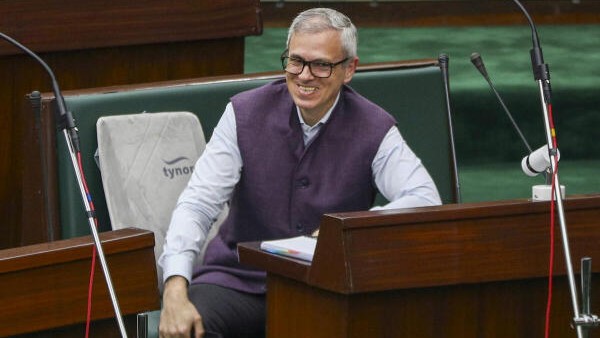
Jammu and Kashmir Chief Minister Omar Abdullah
Credit: PTI Photo
Srinagar: Jammu and Kashmir Chief Minister Omar Abdullah made a significant announcement in the Legislative Assembly on Thursday, revealing that the controversial J&K State Land (Vesting of Ownership to the Occupants) Act, 2001, commonly known as the Roshni Act, will be reintroduced in a new form.
This follows the Act’s repeal and annulment by the previous administration and the High Court’s ruling declaring all allotments under the law “null and void”.
The Roshni Act was originally promulgated in 2001 when Omar’s father Farooq Abdullah was the Chief Minister. The law aimed to grant ownership of Jammu and Kashmir state lands to unauthorised occupants, with the intention of raising funds for the state’s power projects.
Under the original terms, a sum was to be paid to the government by these occupants, with the cut-off date for eligibility initially set at 1990, later extended to 2004 and again to 2007 under the PDP-Congress-led government.
The Comptroller and Auditor General (CAG) in a 2014 report, had stated that only Rs 76 crore had been collected from the transfer of encroached land between 2007 and 2013, as against the target of about Rs 25,000 crore.
Amid allegations of corruption, favouritism and nepotism, in 2018, the Act was repealed by the then-Governor of Jammu and Kashmir, and a Central Bureau of Investigation (CBI) probe was ordered. Subsequently, on October 9, 2020, the Jammu and Kashmir High Court declared the law and all allotments made under it as 'unconstitutional'.
In January 2023, the government began the process of retrieving the encroached land and retrieved over 1,25,000 acres of land, with specific emphasis on state land and grazing land that had been impacted by the Act.
However, a month later the drive was reportedly halted after Centre stepped in and directed J&K administration to issue notices and give proper hearing to residents before arriving with bulldozers.
Addressing the Assembly on Thursday, Omar, who also holds the portfolio for the Revenue Department, explained the origins of the Act. He clarified that the original intent was to convert leased lands into freehold ownership, with a ceiling based on the pre-militancy era.
However, he pointed out that the PDP-Congress government later removed the ceiling, which ultimately led to the Act being challenged in court. The Chief Minister highlighted that many beneficiaries of the scheme did not receive either freehold or leasehold ownership of their lands.
He emphasised that the Roshni Act, despite its legal challenges, needed to be revamped in a new form to address the issues of unauthorised land occupations and the broader concerns regarding land reforms.